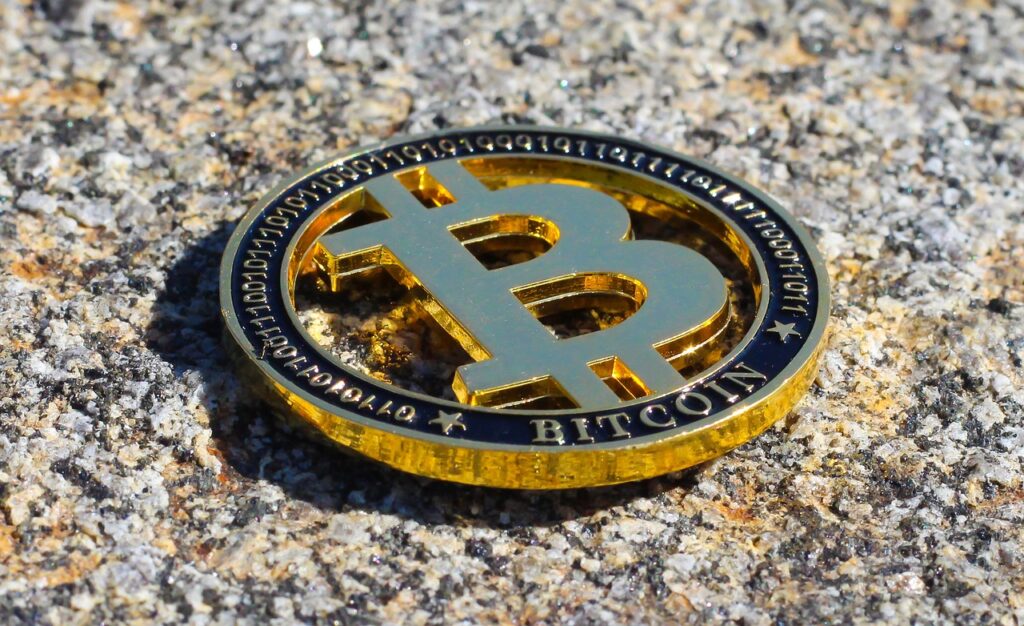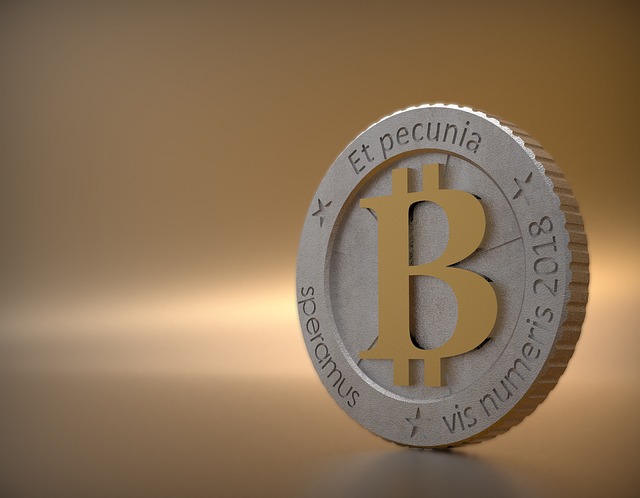Decentralized Finance Platforms: The Heart of DeFi
Decentralized Finance Platforms: The Heart of DeFi

What are DeFi Platforms?
DeFi platforms, short for decentralized finance platforms, have been garnering significant attention in the world of finance. These platforms utilize blockchain technology to provide financial services and applications without the need for intermediaries such as banks or other traditional financial institutions. In simpler terms, you can think of DeFi platforms as financial systems built on the blockchain that enable users to engage in various financial activities directly, securely, and transparently.
One of the key aspects of DeFi platforms is their ability to offer users access to financial services and opportunities that were previously only available to a select few.

The Rise of DeFi Platforms
The rise of DeFi platforms has been nothing short of phenomenal in recent years. These platforms are revolutionizing traditional financial systems by enabling users to access a wide range of financial services in a decentralized and permissionless manner. With the increasing adoption of cryptocurrencies and blockchain technology, DeFi platforms have gained significant traction and are attracting both individual and institutional investors.
One of the key drivers behind the rise of DeFi platforms is the potential for greater financial inclusion. By removing intermediaries and barriers to entry, these platforms provide access to financial services for individuals who may have previously been excluded from the traditional financial system. This has the potential to empower millions of people globally, particularly those in underserved communities, by giving them control over their own finances and allowing them to participate in global economic activities. Moreover, the transparency and immutability of blockchain technology provide a higher level of trust and security, further enhancing the appeal of DeFi platforms.
The growth of DeFi platforms has also been fueled by the ability to earn passive income through various lending and staking mechanisms. These platforms offer users the opportunity to lend their assets to borrowers, thereby earning interest on their holdings. Additionally, users can stake their cryptocurrencies to contribute to the security and governance of the platforms and earn rewards in return. This innovative approach to earning passive income has attracted many investors seeking to capitalize on the potential returns offered by DeFi platforms. As a result, the total value locked in DeFi protocols has seen a significant increase, reaching billions of dollars and demonstrating the growing trust and confidence in these platforms.
The Core Features of DeFi Platforms
DeFi platforms, also known as decentralized finance platforms, have gained significant recognition in recent years. These platforms are built on blockchain technology, allowing users to engage in financial activities without the need for intermediaries like banks or financial institutions. One of the core features of DeFi platforms is their ability to provide users with complete control over their funds. By leveraging smart contracts, users can access a wide range of financial services, such as lending, borrowing, and trading, all directly from their digital wallets. This decentralized nature eliminates the need for traditional financial intermediaries, making transactions more efficient, transparent, and accessible to a broader range of individuals.
Another important feature of DeFi platforms is the concept of programmable money. Through the integration of smart contracts, users can automate certain financial operations, streamlining processes and reducing human error. For example, DeFi platforms allow users to set up lending contracts where interest rates and repayment terms are automatically enforced without the need for a third-party mediator. This automation not only provides convenience but also helps to lower costs and speed up transactions. Moreover, the programmability of DeFi platforms enables innovative financial products to be created, such as decentralized stablecoins and prediction markets, expanding the possibilities of what can be achieved in the financial realm.
The Benefits of Decentralized Finance Platforms
Decentralized Finance (DeFi) platforms have been gaining traction in recent years, and for good reason. One of the key benefits of these platforms is the elimination of intermediaries. Traditionally, when individuals wanted to engage in financial transactions such as lending or borrowing, they had to go through banks or other financial institutions, leading to high fees and longer processing times. However, with DeFi platforms, these intermediaries are no longer needed. This not only reduces costs but also provides users with greater control over their financial activities.
Another significant benefit of DeFi platforms is their accessibility. In many parts of the world, access to traditional banking services is limited, with a large portion of the population being unbanked or underbanked. However, with DeFi platforms, individuals can access financial services simply by having an internet connection and a compatible device. This inclusivity empowers those who may have previously been excluded from the traditional financial system, allowing them to participate in activities like lending, trading, and investing, which can ultimately help improve their financial well-being.
Exploring Different Types of DeFi Platforms
When it comes to exploring the different types of DeFi platforms, there is a wide range of options available in the market. One popular type is decentralized exchanges (DEXs). These platforms allow users to trade cryptocurrencies directly from their wallets, without the need for intermediaries or central authorities. DEXs offer a higher level of privacy and security compared to traditional exchanges, as users have full control over their funds.
Another type of DeFi platform is lending and borrowing protocols. These platforms allow users to lend their cryptocurrencies and earn interest or borrow funds by providing collateral. This eliminates the need for traditional banking institutions and allows individuals to participate in the lending and borrowing market directly. One of the main advantages of these platforms is that they provide access to financial services to individuals who may not have access to traditional banking services.
Popular DeFi Platforms in the Market
DeFi platforms have gained significant traction in the market, with several emerging as popular choices among cryptocurrency enthusiasts. One such platform is Compound, which allows users to lend and borrow various digital assets such as Ethereum and USDC. Its algorithmically determined interest rates and decentralized governance model have attracted many users seeking to earn passive income or access liquidity.
Another popular DeFi platform is Uniswap, which operates as a decentralized exchange (DEX). Unlike traditional exchanges that rely on a centralized order book, Uniswap utilizes an automated market maker system. This enables users to trade ERC-20 tokens directly from their wallets, providing them with greater control over their funds. The platform’s innovative approach to liquidity provision and user-friendly interface has made it a go-to choice for many traders and investors in the decentralized finance space.
As the popularity of DeFi platforms continues to soar, new players are constantly joining the market, offering innovative solutions and services. It’s important for users to conduct thorough research and due diligence before participating in any DeFi platform, as there are still risks associated with this emerging sector. Nevertheless, the growth and adoption of DeFi platforms showcase the increasing demand for decentralized financial solutions and the potential they hold for reshaping the traditional financial landscape.
The Challenges Faced by DeFi Platforms
While the decentralized finance (DeFi) movement is gaining popularity and momentum, it is not without its fair share of challenges. One of the primary challenges faced by DeFi platforms is the issue of security. Due to their decentralized nature, these platforms are vulnerable to security breaches and hacking attempts. The absence of a central authority also means that there is no entity to hold accountable in the event of a security breach, making it a pressing concern for both platform developers and users.
Moreover, the fast-paced and rapidly evolving nature of DeFi platforms poses another challenge. With new platforms emerging almost daily, it becomes increasingly difficult for users to navigate the DeFi space and distinguish between genuine and fraudulent projects. Lack of proper due diligence and regulations can result in users falling victim to scams, leading to loss of funds and loss of trust in the DeFi industry as a whole. As a result, there is a growing need for initiatives that promote transparency and educate users on how to identify and avoid potential risks associated with DeFi platforms.
• Security is a major challenge for DeFi platforms due to their decentralized nature
• The absence of a central authority makes it difficult to hold anyone accountable in the event of a security breach
• The fast-paced and rapidly evolving nature of DeFi platforms makes it challenging for users to distinguish between genuine and fraudulent projects
• Lack of proper due diligence and regulations can lead to users falling victim to scams, resulting in loss of funds and trust in the industry
• Initiatives promoting transparency and educating users on identifying potential risks are needed
The Role of Decentralization in DeFi Platforms
Decentralization plays a crucial role in the existence and functioning of DeFi platforms. Unlike traditional financial systems that are controlled by centralized authorities such as banks and governments, DeFi platforms aim to create a financial system that is autonomous and independent. This means that the decision-making power is distributed among the participants of the platform, removing the need for intermediaries.
One of the key advantages of decentralization in DeFi platforms is the increased transparency and security it offers. By leveraging blockchain technology, transactions and other activities on these platforms are recorded in a public and immutable ledger, visible to all participants. This ensures that no single entity can manipulate or alter the data, providing a high level of trust and accountability. Additionally, the use of smart contracts on decentralized platforms enables automated and secure execution of transactions, eliminating the need for intermediaries and reducing the risk of fraud or human error.
As decentralized finance continues to gain popularity, the role of decentralization in DeFi platforms will become even more significant. With the potential to revolutionize the way we interact with financial systems, decentralization empowers individuals by giving them control over their own assets and financial decisions. However, it is important to note that challenges exist in implementing and scaling decentralized systems, such as network congestion and regulatory hurdles. Nonetheless, the future of DeFi platforms looks promising, with decentralization at its core.
The Future of DeFi Platforms
As we look ahead to the future of DeFi platforms, it is clear that they have the potential to revolutionize the financial industry.

One aspect that holds promise for the future is the integration of blockchain technology with DeFi platforms. By leveraging the security, transparency, and immutability of blockchain, these platforms can provide an even higher level of trust and efficiency. This opens up opportunities for various industries to incorporate DeFi solutions into their processes, from supply chain management to real estate transactions. With the potential for interoperability among different blockchains, the future of DeFi platforms looks bright, offering a seamless and interconnected financial ecosystem.
In conclusion, the rapid growth of DeFi platforms has showcased the power and potential of decentralized finance. As these platforms continue to evolve and innovate, they are providing individuals with more control over their financial lives and opening up opportunities that were previously inaccessible.

However, it is important to recognize that challenges exist within the DeFi space. As with any emerging technology, there are risks involved, such as smart contract vulnerabilities and regulatory uncertainties. Additionally, the scalability and interoperability of DeFi platforms are areas that require further development. Nevertheless, it is clear that the decentralized finance movement is here to stay, and it will be fascinating to observe how the industry evolves in the coming years.
What are DeFi platforms?
DeFi platforms are decentralized finance platforms that use blockchain technology to provide financial services without the need for intermediaries like banks.
How have DeFi platforms risen in popularity?
DeFi platforms have gained popularity due to their ability to offer financial services that are accessible, transparent, and have the potential for higher returns compared to traditional finance.
What are the core features of DeFi platforms?
The core features of DeFi platforms include smart contracts, permissionless accessibility, interoperability, and decentralization.
What are the benefits of using decentralized finance platforms?
Decentralized finance platforms offer benefits such as financial inclusivity, transparency, security, reduced fees, and the ability to earn passive income through various decentralized applications (dApps).
What are some different types of DeFi platforms?
Some different types of DeFi platforms include decentralized exchanges (DEXs), lending and borrowing platforms, decentralized stablecoins, yield farming platforms, and decentralized insurance platforms.
What are some popular DeFi platforms in the market?
Some popular DeFi platforms in the market include Uniswap, Compound, Aave, MakerDAO, and Synthetix.
What challenges do DeFi platforms face?
DeFi platforms face challenges such as scalability limitations, security vulnerabilities, regulatory uncertainties, and user adoption hurdles.
What role does decentralization play in DeFi platforms?
Decentralization is a crucial aspect of DeFi platforms as it ensures that the power and control lie in the hands of the users rather than centralized entities, providing transparency, trust, and autonomy.
What does the future hold for DeFi platforms?
The future of DeFi platforms looks promising, as they continue to innovate and overcome challenges. They have the potential to disrupt traditional finance and transform the way we interact with financial systems.
In conclusion, why are DeFi platforms important?
DeFi platforms are important because they open up financial opportunities to a wider audience, offer more transparency and control over funds, and have the potential to revolutionize the traditional financial landscape.
Todays Featured Product:
Buy, exchange and grow your crypto securely with a Ledger hardware wallet, combined with the Ledger Live app. It’s never been easier to keep your crypto safe and accessible. Buy direct from Ledger.com and get todays Special Offers Here.




